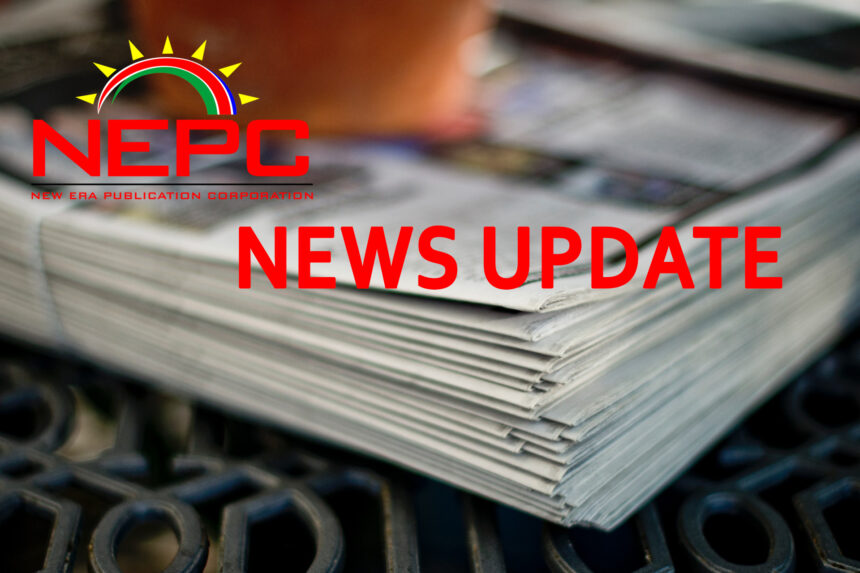President Nangolo Mbumba delivered the State of the Nation Address on the 14 March 2024. This was a highly anticipated address, and it is intended to update the general public and all relevant stakeholders on the government’s progress in the previous year, as well as detail the plans and directives for the coming year.
This year’s address came against the backdrop of Namibia dealing with the passing of the third president of Namibia, Hage Gottfried Geingob, on 4 February 2024. May God give him eternal rest and the Namibians the strength to bear the great pain.
As you assume the mantle of leadership following the untimely passing of president Geingob, the weight of this responsibility rests upon your shoulders, and I wish you strength, wisdom and courage in navigating the challenges that lie ahead.
Your journey into national leadership began under sombre circumstances but it is my hope that you will carry forth the legacy with dedication and integrity. The Republic of Namibia looks to you for guidance, progress, and stability.
Congratulations, President Mbumba, may your leadership be a beacon of hope for our beloved country.
Sona reflections
The Sona, wherein the President outlines priorities for the year, the state of the economy and achievements, implementation is always much anticipated. The Sona provides an opportunity for the President to articulate the plans and progress made thus far in the application of national values and principles.
The fight against corruption, which has robbed off public resources, requires bold legislative and policy reforms. There is a need, now more than ever, to restructure the economy and set the country on the pathway of economic recovery.
The President has also provided a clear economic implementation action plans that demonstrates the importance of the government’s commitment to the economic recovery plan. The policy to get youths to be trained moving forward.
The President should have enlightened Namibians, on the recent grey listing by the Financial Action Task Force (FATF) to provide comfort.
However, the current grey listing has no major negative effect on our economy. The President should have addressed the uncertainty that the country has witnessed, regarding gender-based violence (GBV) and the plight of persons living with disabilities, it is important for the government to state its position and the possible resolutions herein. It was important for his Excellency to come out strongly on the matter and advise what government is doing to mitigate the impacts of the high cost of living in Namibia.
Furthermore, the recognition that an enabling environment for business is critical for attracting investment and helping to solve the unemployment and low economic growth challenge in Namibia is significant.
The success or failure of government in this regard will be a decisive factor in determining whether Namibia’s agricultural sector lives up to its potential or stalls as the nation’s infrastructure and vital services continue their decline.
The job of government is to create a conducive policy environment with working infrastructure and effective service delivery. Only then will the agricultural sector be able to accelerate the expansion of these employment statistics, creating a wealth of opportunities for a generation of workers in the rural communities that most need them.
In this same collaborative spirit, government must be willing to hear the voices of the sector as we propose solutions to some of the greatest problems facing the industry and the country. This is especially true for the issue of land reform and youth unemployment.
It was a great opportunity that, his Excellency should have addressed the issues of the implementation of the African Continental Free Trade Area Agreement (AfCFTA) and the African Sovereign Africa Rating (SAR) agency viewed as catalysts for long-term continental prosperity and integration.
Moreover, whatever level of increased economic activity this would trigger, it is worth implementing because our unemployment situation is so desperate. Furthermore, the problems in the Namibian economy are deep and they are structural. Structural reforms to support for SMEs, investments in infrastructure and the emergence of new sectors will drive a turnaround in economic growth driven by the private sector growth.
Adopting truly transformative pathways will require viewing the roadblocks on the journey to sustainable development through a transformative lens. The critical aspect of his approach needs to strike the right balance in all his policies between protecting the poor and growing the economy and working with both public and private sector partners, government in implementing a range of measures to address inadequate and inconsistent performance by State-owned enterprises (SOEs).
Therefore, we should aim to be masters of our own destiny, where we mobilise our own resources for the future, breaking the shackles of the colonial economy and a mindset of dependency, bailouts and extraction. It is an economy where we look past commodities to position ourselves in a global marketplace. It is a country where we focus on trade, not aid, a hand-up, not handouts. It is a country with a strong private sector.
It is a country that recognises the connectedness of its people and economy to those of its neighbours. This requires a forward-looking vision for our country, enabling us to confront our challenges and embrace our opportunities, not one fastened in the rear-view mirror. It is a Namibia beyond aid. We need to see the words translated into actions, the emphasis on a market-led economy and a greater role for the private sector bodes well for the future.
Taking these observations into consideration, the President’s speech mostly struck the right note. It did not downplay the many difficulties the nation is currently facing or try to illustrate anything other than the realisation that we are at a crossroads as a nation.
He referred to it as the need for a new consensus that centres on the mutual assistance of the public and private sectors, each of which performs unique roles, in order to fully realise the potential of the Namibian economy.
* Josef Kefas Sheehama is an independent economics and business analyst.


